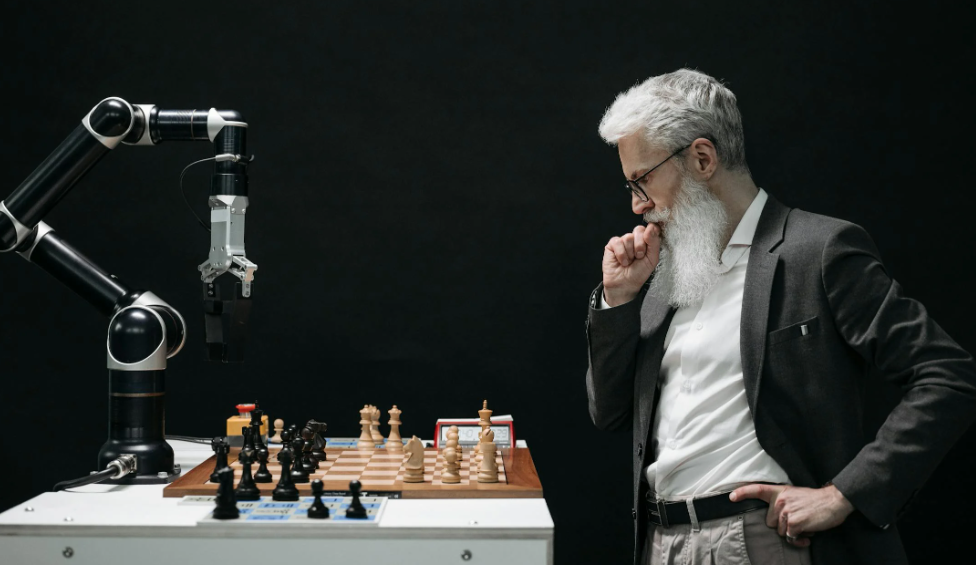Artificial Intelligence (AI) is no longer a futuristic concept — it’s deeply woven into the fabric of our everyday lives. From personalized shopping recommendations to self-driving cars, AI is transforming industries, revolutionizing services, and reshaping human interaction with technology.
In this article, we’ll explore how AI is changing the world across multiple sectors, the benefits and challenges it brings, and what the future holds.
What is Artificial Intelligence?
Artificial Intelligence refers to the simulation of human intelligence processes by machines, especially computer systems. These processes include learning, reasoning, problem-solving, perception, and language understanding.
Today’s AI technologies are divided into two categories:
-
Narrow AI: Specialized in one task (like facial recognition or internet searches)
-
General AI: Hypothetical AI that could perform any intellectual task a human can do (still under development)
Major Ways AI is Changing the World
1. Healthcare Advancements
AI is playing a massive role in healthcare by improving diagnostics, personalizing treatments, and predicting diseases before symptoms even appear.
Examples:
-
AI-powered imaging systems detect cancers more accurately.
-
Predictive analytics help in early diagnosis of conditions like Alzheimer’s.
-
Virtual health assistants provide 24/7 support to patients.
Impact:
Better patient outcomes, faster diagnosis, and more affordable healthcare.
2. Revolutionizing Transportation
AI is making transportation smarter, safer, and more efficient.
Examples:
-
Self-driving cars from Tesla, Waymo, and other companies.
-
AI in traffic management to optimize flow and reduce accidents.
-
Ride-sharing apps like Uber and Lyft using AI for route optimization.
Impact:
Reduced accidents, lower transportation costs, and less traffic congestion.
3. Enhancing Customer Experience
Businesses are leveraging AI to improve customer service, marketing, and sales.
Examples:
-
Chatbots providing instant support.
-
Personalized product recommendations on Amazon and Netflix.
-
AI-driven customer sentiment analysis.
Impact:
Better customer satisfaction, more tailored shopping experiences, and increased brand loyalty.
4. Transforming Education
AI is making education more accessible, engaging, and personalized.
Examples:
-
Adaptive learning platforms adjusting content based on student performance.
-
AI tutors offering personalized feedback.
-
Virtual classrooms enhanced with AI tools.
Impact:
Customized learning paths, inclusive education for differently-abled students, and global access to quality education.
5. Improving Agriculture
AI is helping farmers optimize resources and boost crop yields.
Examples:
-
AI-driven drones monitoring crop health.
-
Smart irrigation systems reducing water wastage.
-
Predictive analytics for better planting and harvesting schedules.
Impact:
Increased food production, sustainable farming practices, and reduced environmental impact.
6. Boosting Cybersecurity
Cyber threats are evolving, and so is AI’s role in defending against them.
Examples:
-
AI detecting fraud in real-time.
-
Automated threat detection and response systems.
-
Biometric security advancements using AI.
Impact:
More robust security systems, early threat identification, and protection of sensitive data.
7. Advancing Entertainment and Creativity
AI is pushing the boundaries of creativity in music, art, and writing.
Examples:
-
AI-generated art and music compositions.
-
Automated content creation for marketing and journalism.
-
Personalized gaming experiences.
Impact:
New forms of artistic expression, faster content creation, and more immersive entertainment.
Challenges and Ethical Considerations
Despite the benefits, AI brings challenges and concerns that must be addressed:
-
Bias and discrimination: AI systems can unintentionally reinforce societal biases.
-
Job displacement: Automation could replace certain jobs, impacting livelihoods.
-
Privacy concerns: AI’s data dependency raises privacy and surveillance issues.
-
Control and safety: Ensuring AI systems behave as intended is critical.
Solving these challenges requires ethical AI development, strong regulations, and ongoing research.
Future of AI: What to Expect
In the coming years, AI will become even more powerful and integrated into our lives:
-
AI doctors assisting surgeries
-
Hyper-personalized learning for every student
-
AI-enhanced human creativity in design, music, and literature
-
Smarter home automation with predictive capabilities
-
Global issues like climate change being addressed with AI insights
The future promises a partnership between humans and AI, combining strengths to solve the world’s most complex problems.
FAQs About Artificial Intelligence
Q1. Will AI take over all jobs?
AI will automate some tasks, but it will also create new jobs in AI development, ethics, data science, and AI maintenance. The focus will shift toward creativity, strategy, and emotional intelligence.
Q2. Is AI dangerous?
If not regulated properly, AI could cause harm, especially through biased systems or autonomous weapons. However, with responsible development and oversight, AI can be a powerful tool for good.
Q3. How is AI used in daily life?
AI is already part of daily life through smartphones, voice assistants, recommendation systems (like Netflix or Amazon), smart home devices, and even online banking fraud detection.
Q4. Can AI be creative?
Yes! AI is increasingly capable of producing art, music, poetry, and even original writing. However, it generally works best when collaborating with human creativity.
Q5. How can I start learning AI?
There are many online resources, courses, and certifications in AI and machine learning, including free options like Coursera, edX, and Google AI.
Conclusion
Artificial Intelligence is transforming every part of our world — from how we work and learn to how we heal and entertain ourselves.
While AI brings incredible benefits, it’s crucial to approach it responsibly, addressing ethical challenges and ensuring it serves humanity positively.
The future of AI is bright, and by embracing its potential today, we can shape a better tomorrow.
